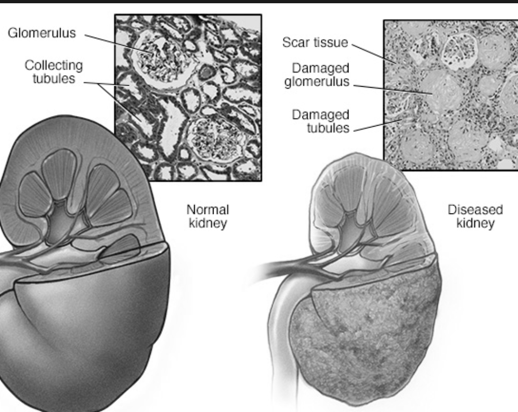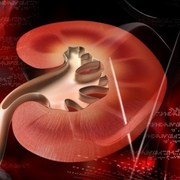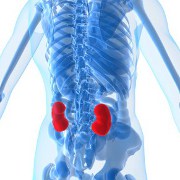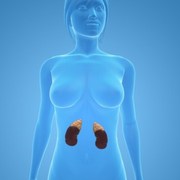The kidneys are located near the middle of the back, just below your rib cage. Healthy kidneys are each roughly the size of your fist, and shaped like beans. Each kidney is made up on the inside of about a million little things called nephrons, which help filter our blood. The kidneys are sort of like the body’s filter system, sort of like the filter in a swimming pool. Just like a pool filter traps dirt and bugs and other things, our kidneys remove waste products from our bodies as well as extra water, which turns into urine. The urine then travels out of the kidneys through tubes called ureters to the bladder, where it hangs out until you go to the bathroom.
At this point you might be thinking “well, if each of my kidneys is made up of about a million of these nephrons, it’s probably no big deal if some of them aren’t working up to standards.” While it’s true that we have a ton of nephrons working all the time keeping toxins from building up in our systems, don’t think for a minute that we can afford to lose some of them to disease. When the nephrons become damaged for a variety of reasons, kidney disease will result. Over time, this will lead to kidneys that are unable to remove wastes from our bodies. And just like a damaged or full pool filter will lead to green water, kidneys that are no longer functioning can lead to some very serious health issues. One thing that’s scary about kidney disease is that it tends to sneak up on you. For many people, the nephrons will become damaged slowly but surely over many years, and at first there typically aren’t any symptoms. This is why it’s important to know what can cause kidney disease, so you and your physician can regularly check your kidney function and make sure everything is still working as it should.
Do you have diabetes? If you, you are at a higher risk for developing kidney disease. The same is true if you have high blood pressure, cardiovascular disease, or a close family member who has kidney issues. In general, about seven of ten people with kidney disease have either diabetes or hypertension.
So, if you have one of these health conditions and your kidney test results didn’t look so good, there’s both good news and bad news to consider. First, the bad news—kidney disease does not typically go away. Sadly, it won’t get better and over time, it might even get worse. Unless you are very careful, and herein lies the good news—kidney disease can be treated. It’s not a condition that you have to sit back and let happen to you; you can work up a treatment plan with your physician and help delay or prevent your kidneys from failing.
In case you are wondering, the two tests that help look for kidney disease are a blood test that checks something called the “glomerular filtration rate” or GFR, and a urine test that checks for a protein called albumin. The GFR result will tell your doctor how well your kidneys are filtering, and if you have albumin present in your urine, it’s an indication that your kidneys are damaged.
Just as you need to keep your pool filter clean and running smoothly to prevent algae from taking over your pool water, there are preventative steps you can take to keep your kidneys as healthy as possible. In part two of this article, we’ll go over some things we can do to try to ward off kidney disease for as long as possible.
References:
www.nlm.nih.gov/medlineplus/kidneydiseases.html
www.nkdep.nih.gov/resources/make_the_kidney_connection.htm






Add a CommentComments
There are no comments yet. Be the first one and get the conversation started!